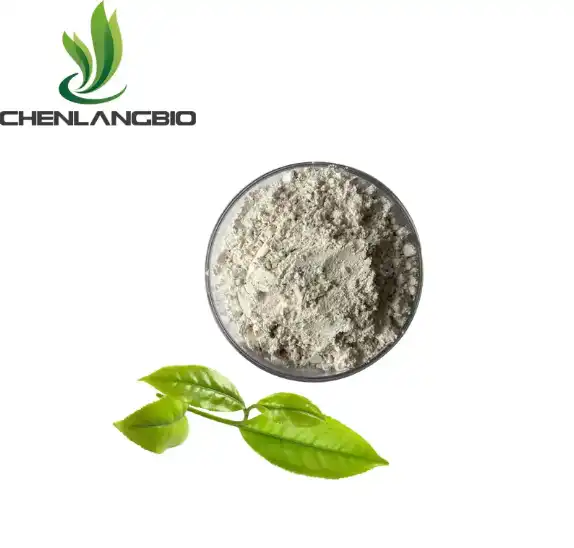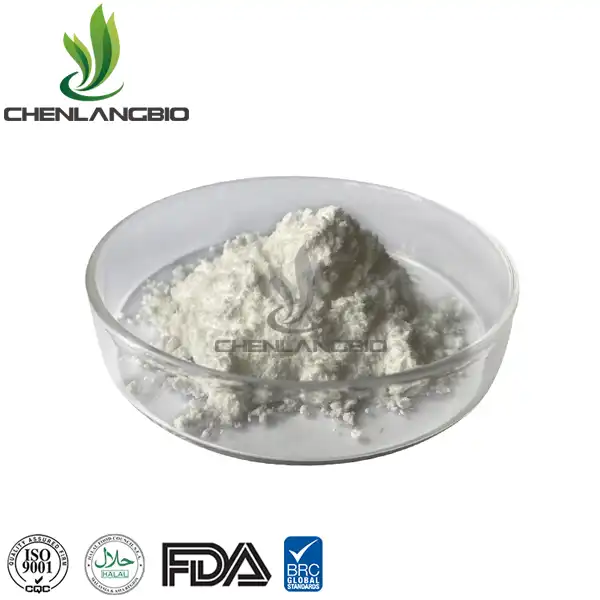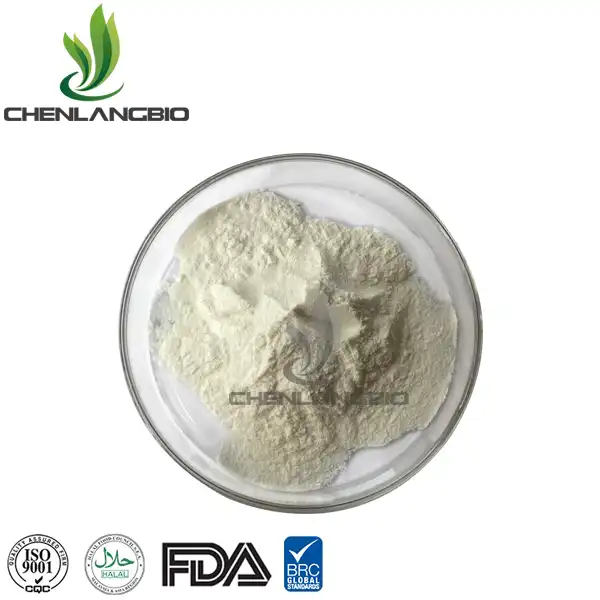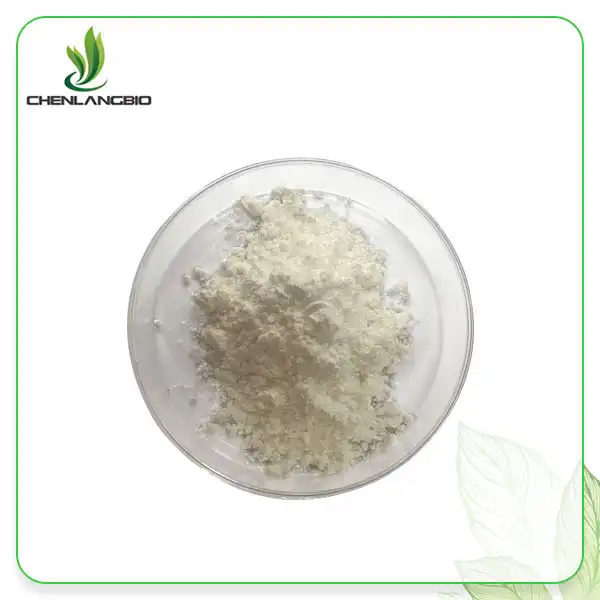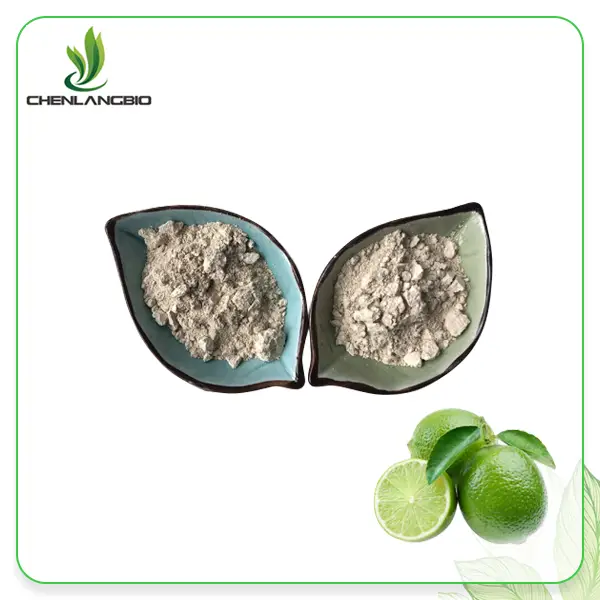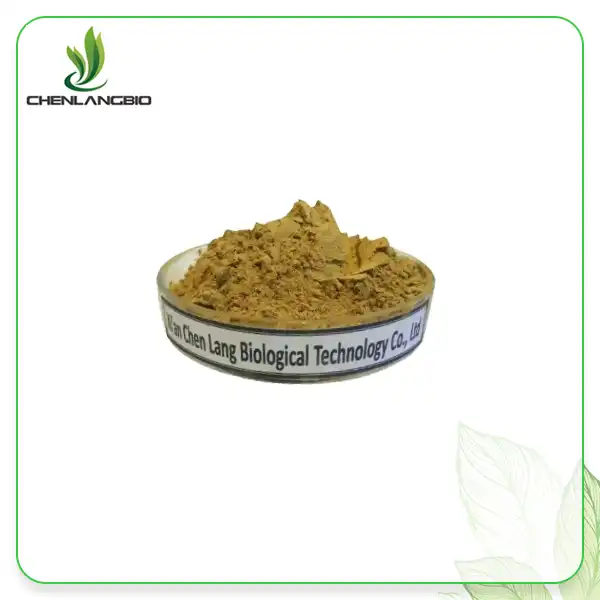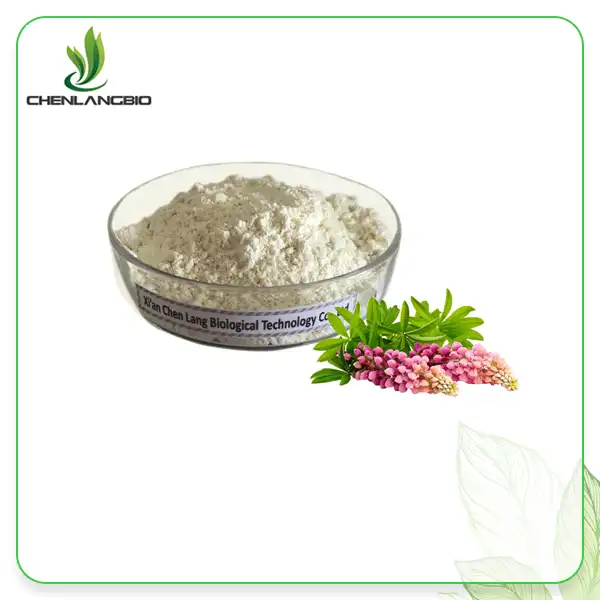Is EGCG the Same As Green Tea Extract
2024-09-02 11:55:31
Green tea is frequently promoted for its medical benefits due to its composition of potent mixtures. One of these, epigallocatechin gallate (EGCG), is much of the time referenced. On the other hand, are EGCG and green tea extract the same thing or are they two different products? In this article, you will find out about the advantages and burdens of green tea extricate and EGCG, as well as how to pick the best Green Tea Concentrate EGCG Powder for your requirements.
Understanding EGCG and Green Tea Extract
The natural antioxidant EGCG (Epigallocatechin Gallate), a type of catechin, can be found in green tea. It is one of the polyphenols in green tea with the most examination as a result of its potential medical advantages, including cell reinforcement, calming, and hostile to disease properties.
A concentrated type of green tea produced using the Camellia sinensis plant's leaves is called Green Tea Concentrate EGCG Powder. Because of its wellbeing advancing properties, including EGCG, it is remembered for dietary enhancements and different items.
Even though EGCG is a component of the extract, it is not the same as the extract itself. Green tea extract EGCG powder contains a variety of catechins, including EGCG, as well as other beneficial compounds like caffeine, L-theanine, and additional polyphenols.
How Does EGCG Compare to Green Tea Extract?
Let's look at the characteristics and applications of EGCG and green tea extract to better comprehend their differences:
Concentration and composition:
Green tea contains the natural antioxidant EGCG (Epigallocatechin Gallate), a type of catechin. It is one of the polyphenols in green tea with the most research because of its potential health benefits, including antioxidant, anti-inflammatory, and anti-cancer properties.
Green tea extract EGCG powder is a concentrated form of green tea made from the leaves of the Camellia sinensis plant. Because of its wellbeing advancing properties, including EGCG, it is remembered for dietary enhancements and different items.
EGCG is not the same as the extract itself, even though it is a component of it. Green tea separate contains different catechins, including EGCG, as well as other advantageous mixtures like caffeine, L-theanine, and extra polyphenols.
Benefits to Health:
EGCG: Among the health benefits of EGCG are increased antioxidant activity, improved cardiovascular health, support for weight loss, and potential cancer-fighting properties. Its high concentration in supplements frequently targets specific health issues.
Supplement with Green Tea: Due to the diverse collection of polyphenols it contains, Green tea extract EGCG powder has numerous advantages, including antioxidant ones. Among its many benefits, it has the potential to support overall health, boost metabolism, and improve mental clarity.
Forms and Usage:
EGCG Goods: These are typically available in extremely concentrated forms, such as powders or cases, specifically designed to deliver a potent amount of EGCG. They are frequently used for particular health benefits.
Taking Supplements with Green Tea: Powder, capsule, and tablet forms are all available for these. They provide a variety of the compounds found in green tea, making them useful for health benefits and general maintenance.
Choosing the Right Green Tea Extract EGCG Powder
Consider the following recommendations when selecting a green tea extract EGCG powder to guarantee a high-quality product that meets your requirements:
Examine Purity and Concentration
When choosing a Green Tea Extract EGCG Powder, it's crucial to prioritize products with a high concentration of EGCG, ideally 90% or more. This ensures maximum potency and efficacy. Additionally, check the ingredient list for any unnecessary fillers or additives that might dilute the purity of the product. A focus on purity guarantees you're getting the most out of the supplement's health benefits.
Take into consideration the brand's reputation
Opting for supplements from reputable brands is essential for ensuring quality and safety. Brands known for transparency and rigorous quality control are more likely to offer reliable products. Look for third-party certifications and testing to validate the product's claims. Trustworthy brands prioritize consumer health and provide products that meet high industry standards, giving you confidence in your purchase.
Identify Your Needs
Your particular wellbeing objectives ought to direct your decision of EGCG powder. A specialized EGCG powder might be better for you if you're looking for specific health benefits like weight loss or antioxidant support. Be that as it may, assuming your point is general wellbeing, a wide range green tea concentrate could be more suitable. Understanding your necessities guarantees that the enhancement lines up with your wellbeing targets.
Examine the Kind and Dosage
The structure and measurements of the enhancement ought to line up with your way of life and inclinations. While powders offer flexibility in measurement and can be effectively blended into beverages, cases and tablets give comfort to in a hurry use. Consider how each structure squeezes into your day to day daily schedule and pick the one that offers the best harmony between straightforwardness and viability for your necessities.
Conclusion
Although they share many similarities, EGCG (epigallocatechin gallate) and green tea extract are not the same thing. EGCG is a specific kind of catechin, a powerful antioxidant found in green tea. It is one of the components of green tea that has received the most research and attention because of its numerous health benefits. The more general term "green tea extract," on the other hand, refers to a concentrated form of green tea that contains a variety of beneficial compounds, such as EGCG, in addition to other catechins, polyphenols, vitamins, and other nutrients.
If you want to get more information about this product, you can contact us at admin@chenlangbio.com.
References
1.Duffy, S. J., & Keaney, J. F. (2002). Green Tea Extract and Cardiovascular Health. American Journal of Cardiology, 90(2), 145-152.
2.Harbowy, M. E., & Balentine, D. A. (1997). Tea and Health: An Overview. Food Chemistry, 60(3), 243-259.
3.Khan, N., & Mukhtar, H. (2013). Tea Polyphenols in Promotion of Health. BioMed Research International.
4.Li, C., & Wang, X. (2015). EGCG and Its Role in Anti-cancer Research. Journal of Nutritional Biochemistry, 26(7), 834-842.
5.Liao, J. C., & Lou, W. K. (2012). Antioxidant Properties of Green Tea Polyphenols. Journal of Agricultural and Food Chemistry, 60(34), 8356-8364.
6.Yang, C. S., & Wang, X. (2016). Green Tea Extract and Its Health Benefits. Frontiers in Pharmacology, 7, 10.
Send Inquiry
Related Industry Knowledge
- Elastin Peptide: The Science-Backed Ingredient for Firm Skin
- What Makes Oleuropein Powder a Best-Seller in Natural Extracts?
- What Are the Top Industrial Applications of Indole-3-methanol in 2025?
- How Does Vitamin D3 Powder Support Bone Health and Calcium Absorption?
- Is Dimethylmethoxy Chromanyl Palmitate Effective for Hyperpigmentation
- Top Benefits of Isobutylamido Thiazolyl Resorcinol in Skincare
- What Does Andrographolide Do for Your Skin
- Can I Use Sodium Ascorbyl Phosphate with Niacinamide
- Where to Buy High quality Argireline Powder
- Explore Gynostemma Pentaphyllum Extract Gynostemma Pentaphyllum Powder in Depth

